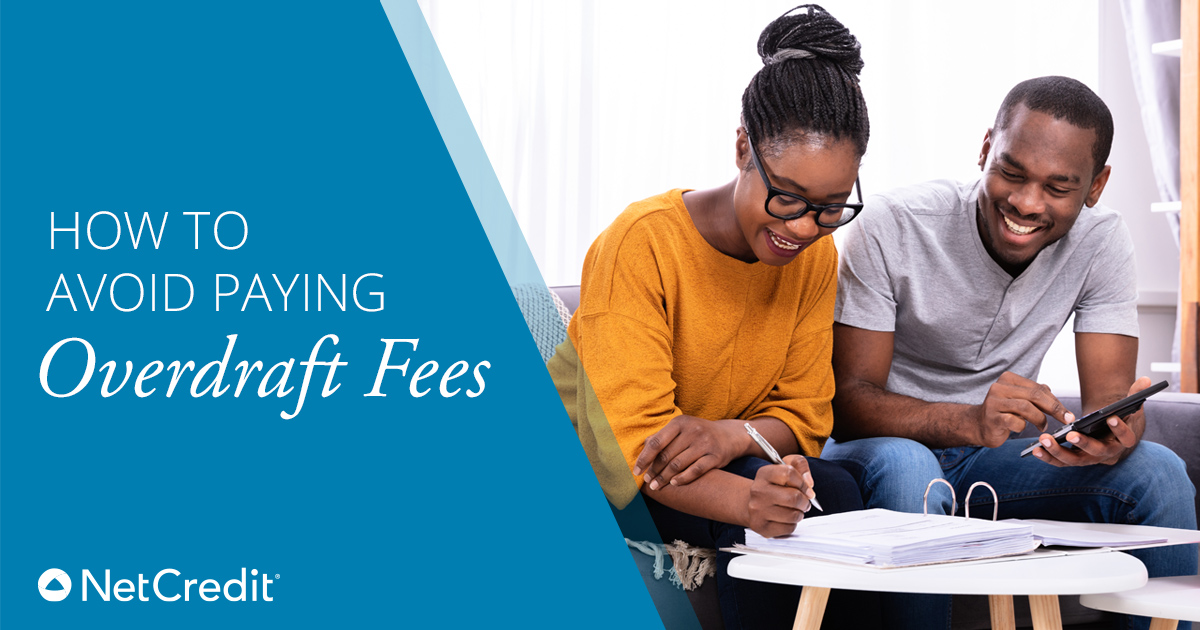Proper budgeting, in theory, is much easier said than done. In the real world, unplanned expenses can easily come along and throw off your budget in an instant. Instead of overdrafting your account, which can cause your financial institution to charge you overdraft fees, it’s worthwhile to explore your credit options. Luckily, there are ways to avoid them altogether as well as alternatives to help you pay your bills and get by until the next paycheck.
How Do Overdrafts Work?
If you try to make a debit purchase and the charge exceeds the available balance in your checking account, one of two things can happen. First, your bank can simply deny the charge. Or, the bank covers the transaction, and depending on the institution and type of account you have, you may receive a fee. This additional charge is an overdraft fee.
An overdraft fee is charged to your checking account each time a purchase exceeds the available balance in your account. Fees vary widely, but most banks with overdraft fees charge at least $25 per transaction, though there may be limits to the number of times a bank may post this fee to your account per day.1 While some financial institutions offer programs such as overdraft protection that help reduce or eliminate such fees, others may actually charge extended overdraft fees which apply to overdrawn accounts that have been in the negative for several consecutive days.
Whether or not banks offer the more attractive overdraft protection programs to you will depend on your creditworthiness, which reflects your borrowing, payment and overall credit history. If you can’t secure a checking account with some type of free or affordable overdraft protection, you can still avoid overdrafts altogether.
What Steps Can You Take To Avoid Overdrafts?
It takes a little planning, but you can prevent overdraft fees in the future:
- You have the option to legally opt-out of an overdraft protection program that you may have already enrolled in with your institution.2 That way, if you ever try to make a debit card purchase with insufficient funds in your account, your bank simply declines the purchase and you won’t incur any associated overdraft fees. It’s worth noting that ACH transactions, checks and other recurring electronic payments that cause an overdrawn account are not subject to this opt-out feature, and you may still receive a non-sufficient fund (NSF) fee should this occur.3
- Contact your bank if you’ve received your first overdraft fee. They may be able to waive a fee as a one-time courtesy, especially if you’re polite to the representative and ask nicely.
- Check your bank account on a regular basis, and set up account notifications, if possible, that alert you of a low balance threshold.
What Are Some Finance Alternatives To Overdrafts?
If you have an upcoming payment, emergency expense or otherwise unavoidable bill that you’ll need more funds to cover, a credit card, line of credit or personal loan are all suitable alternatives. You may still have to pay interest depending on the type of credit you choose, but these longer-term options typically give you more time to repay the funds. Regardless of the method you choose, be sure to carefully review all terms and rates to ensure you’re borrowing responsibly and are familiar with your repayment schedule.
References
1Tierney, S. (February 12, 2019). Overdraft fees: Compare what banks charge. Retrieved July 8, 2019, from https://www.nerdwallet.com/blog/banking/overdraft-fees-what-banks-charge/
2Stein, G. (January 19, 2017). Understanding the overdraft “opt-in” choice. Retrieved July 8, 2019, from https://www.consumerfinance.gov/about-us/blog/understanding-overdraft-opt-choice/
3CFPB. (April 6, 2016). My bank/credit union charged me a fee for overdrawing my account even though I never agreed to let them do so. What can I do? Retrieved July 8, 2019, from https://www.consumerfinance.gov/ask-cfpb/my-bankcredit-union-charged-me-a-fee-for-overdrawing-my-account-even-though-i-never-agreed-to-let-them-do-so-what-can-i-do-en-1037/






